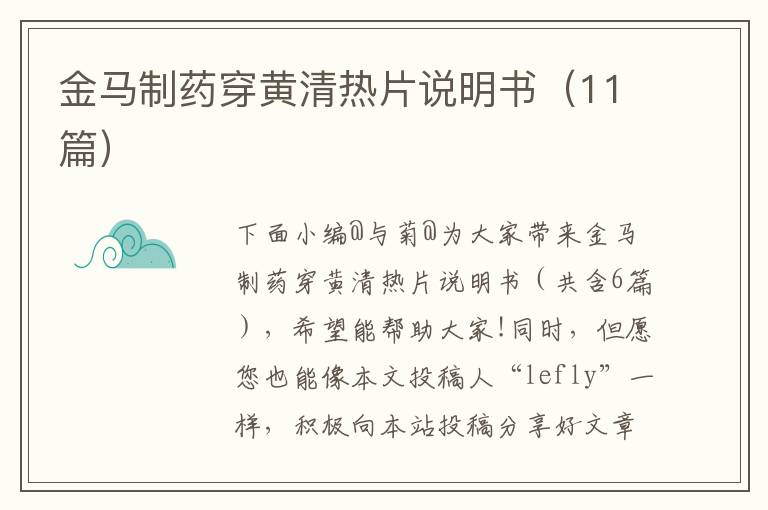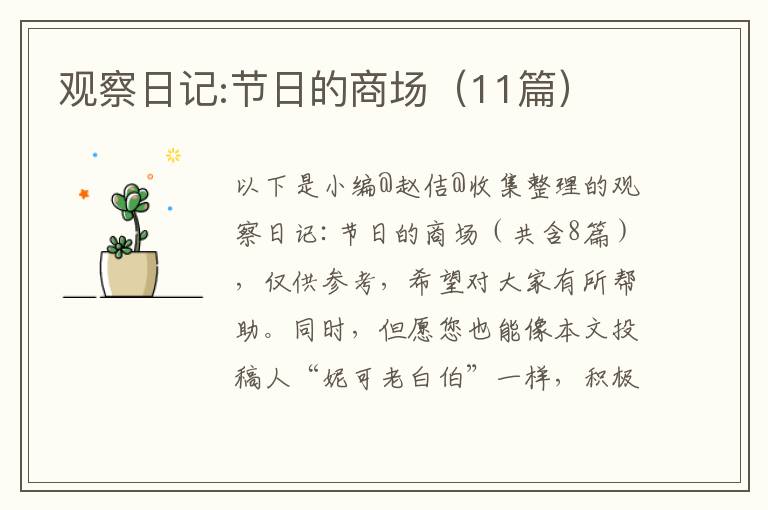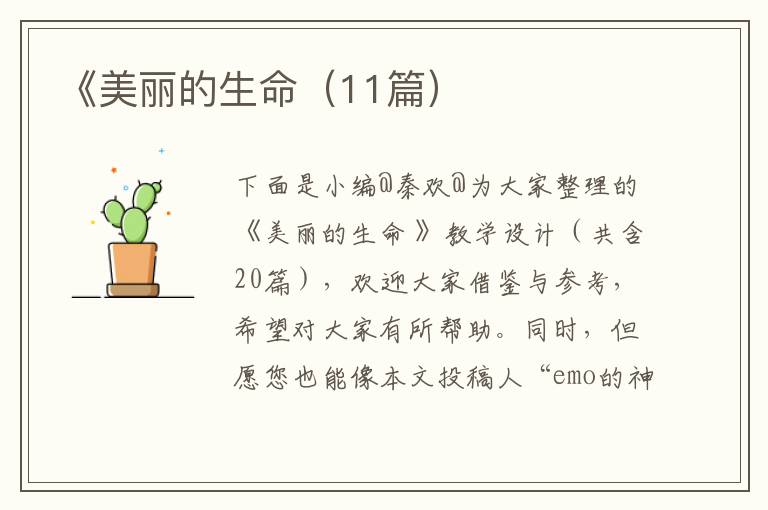相关推荐【英语备考】高考英语词汇分类解析之连接代词
连接代词指连接主语从句、宾语从句、表语从句和同位语从句的代词。连接代词主要包括表示疑问的连接代词和不表示疑问的连接代词,前者称为普通连接代词,后者称为复合式连接代词。
连接代词主要包括:who,whom,whose,which,what,whoever,whomever,whosever,whichever,whatever等。
1.普通连接代词
普通连接代词在名词性从句中表示疑问,作从句的特定成分。
Whowillbeelectedpresidentofthecompanywon'tbeknownuntillatethisafternoon.(who引导主语从句,在从句中作主语,表示疑问。)
今天下午晚些时候,我们才能知道谁将被选为公司老总。
We'rewonderingwhomeverwe'reworkingfor.(whomever引导宾语从句,在从句中作宾语,表示疑问。)
我们一直在纳闷我们在为谁工作。
Thequestioniswhateverwearetodotopreventtheenvironmentfrombeingpollutedanyfurther.(whatever引导表语从句,在从句中作宾语,表示疑问。)
问题是,我们究竟应该做些什么才能阻止环境进一步被污染。
IhavenoideawhomeverIshouldinvitetotheget-together.(whomever引导同位语从句,在从句中作宾语,表示疑问。)
我不知道究竟应该邀请谁参加这次聚会。
2.复合式连接代词
复合式连接代词在名词性从句中不表示疑问,在从句中作特定的成分。
(1)who
who的这种用法相当于anyonewho...或thepersonwho...任何人、……的人。
Whobreaksthelawshouldbepunished.(who引导主语从句,在从句中作主语,不表示疑问,相当于Anyonewho...)
不管是谁违犯了法律都应受到处罚。
注意:
who不表示疑问的这种用法现在越来越多地被whoever所替代。
(2)what
what相当于anythingthat...或allthat...或somethingthat...任何事、……的事。
I'lltellyouwhatwe'replanningtodointhecomingdays.(what引导宾语从句,在从句中作宾语,不表示疑问,相当于allthat...或anythingthat...。)
我会告诉你我们在最近几天将要做的事情。
(3)whoever
whoever相当于anyonewho...任何人。
Iwon'tbelievewhoevercheatsme.(whoever引导宾语从句,在从句中作主语,不表示疑问,相当于anyonewho...。)
我不会相信任何欺骗我的人。
(4)whichever
whichever相当于anyonewho...或anyonewhich...不管哪个(些)人、不管哪个(些)东西,既可指人,也可指物。
Makeyourselfcomfortableandhelpyourselftowhicheveryoulike.(whichever引导宾语从句,在从句中作宾语,不表示疑问,相当于anythingthat...)
随便点,你可以随便用任何一个你喜欢的东西。
(5)whomever
whomever相当于anyonewho/whom...,任何人。
Ihaveinvitedwhomeveryourangthismorning.(whomever引导宾语从句,在从句中作宾语,不表示疑问,相当于anyonewho/whom...。)
我已经邀请了你今天早晨打过电话的每个人。
(6)whosever
whosever相当于any...that...,任何人的、无论谁的东西。
I'llwalkaroundandcollectwhoseverhomeworkhasbeenwelldone.(whosever引导宾语从句,在从句中作定语,不表示疑问,相当于anyone'shomeworkthat...。)
我要到下面去把同学做完的作业收起来。
高考英语最常考的熟词新义
1.absent adj.缺席的→adj.茫然的,恍惚的
She looked at the picture in an absent(茫然的)way.
2.ache v.& n.疼痛→v.渴望
Having left for ages,he was aching(渴望)for home.
3.address n.地址 v.写地址→vt.发表演说
The president will address(发表演说)his speech at 3:00 pm.
4.against prep.逆着,反对;倚,靠;碰→prep.以...为背景
The picture looks nice against(以...为背景)the white wall.
5.attend v.出席;参加→v.看护;治疗;陪同
The nurse attended(看护)to him day and night.
6.blank adj.空白的 n.空白→adj.没表情的;空虚的;没兴趣的
The stranger returned my greeting with a blank(没表情的)look.
7.blue adj.& n.蓝色→adj.忧伤的
His songs always make me feel blue(忧伤的).
8.build vt.建筑,建造→v.逐渐增强 n.体格,体形,身材
One should receive training to build(逐渐增强)up one's confidence.
You're right,Josh. He may have a small build(身材).
9.cause vt.促使,引起→n.原因,起因;事业,目标
Even with a staff of 22 volunteers,Thomas often devotes up to 50 hours a week to his cause(事业).
10.cloudy adj.阴的,多云的→adj.不明朗的,不清晰的
Who will take his place still remains cloudy(不明朗的).
11.coach n.教练→v.辅导,指导
She coached(指导)me in playing football.
12.count n.& v.计算,数→vi.有价值,重要
It is not how much you read but what you read that counts(重要).
13.course n.课程;过程→n.一道菜
The courses(菜谱)vary with seasons.
14.cover v.覆盖→v.行走(一段路程);足以支付,够付;采访n.书刊封面,封皮
Motor-cars cover(行走一段路程)a hundred miles in little more than an hour.
To cover(足以支付)the cost of hiring a bus, each student will have to pay $10 each time.
15.cross v.跨越,横穿n.十字→adj.生气的
Don't be cross(生气的)with him—after all,he is a child.
16.desert n.沙漠→v.抛弃,离弃
He deserted(抛弃)his wife and children and went abroad.
17.deal vi.处理,解决→n.交易
Having been cheated in a business deal(交易),he was reduced to nothing.
18.develop v.发展;开发;研制→v.冲印
Did you have the films developed(冲印)?
19.drive v.驾驶→v.迫使(某人做不好的事)
Hunger drove(迫使)her to steal.
20.express v.表达→n.快车
Is there an express(快车)from Nanjing to Shanghai?
21.encourage vt.鼓励;激励→v.促进,助长,刺激
Good health encourages(促进)clear thinking.
22.escape v.逃跑;逃脱→v.被忘掉;被忽视
The name escapes(被忘掉)me for the moment.
23.explode v.爆炸;爆裂→v.勃然大怒;大发雷霆
I'm about to explode(勃然大怒)!He broke his promise again.
24.exploit v.开发;开采;剥削→v.利用
You must exploit(利用)every opportunity to learn English.
25.fail vi.失败→vi.(健康)衰退,变弱
William found it increasingly difficult to read,for his eyesight was beginning to fail(变弱).
26.foreign adj.外国的;外交的→adj.不熟悉的
The subject is foreign(不熟悉的)to all of us.
27.freeze vi.结冰,(使)冻结→v.惊呆,吓呆
Grandfather froze(吓呆) in fear. Was he going to lose his job?
28.fresh adj.新鲜的→adj.无经验的
She is quite fresh(无经验的)to the work.
29.ground n.地面→n.理由
He has strong grounds(理由)for more money.
30.govern v.管理;控制→vt.影响;支配
The law of supply and demand governs(影响)the prices of goods.
提高英语写作你必须知道的81个单词
1.经济的快速发展 the rapid development of economy
2.人民生活水平的显著提高/ 稳步增长the remarkable improvement/ steady growth of people’s living standard
3.先进的科学技术 advanced science and technology
4.面临新的机遇和挑战 be faced with new opportunities and challenges
5.人们普遍认为 It is commonly believed/ recognized that…
6.社会发展的必然结果 the inevitable result of social development
7.引起了广泛的公众关注 arouse wide public concern/ draw public attention
8.不可否认 It is undeniable that…/ There is no denying that…
9.热烈的讨论/ 争论 a heated discussion/ debate
10. 有争议性的问题 a controversial issue
11.完全不同的观点 a totally different argument
12.一些人 …而另外一些人 … Some people… while others…
13. 就我而言/ 就个人而言 As far as I am concerned, / Personally,
14.就…达到绝对的一致 reach an absolute consensus on…
15.有充分的理由支持 be supported by sound reasons
16.双方的论点 argument on both sides
17.发挥着日益重要的作用 play an increasingly important role in…
18.对…必不可少 be indispensable to …
19.正如谚语所说 As the proverb goes:
20.…也不例外 …be no exception
21.对…产生有利/不利的影响 exert positive/ negative effects on…
22.利远远大于弊 the advantages far outweigh the disadvantages。
23.导致,引起 lead to/ give rise to/ contribute to/ result in
24.复杂的社会现象 a complicated social phenomenon
25.责任感 / 成就感 sense of responsibility/ sense of achievement
26. 竞争与合作精神 sense of competition and cooperation
27. 开阔眼界 widen one’s horizon/ broaden one’s vision
28.学习知识和技能 acquire knowledge and skills
29.经济/心理负担 financial burden / psychological burden
30.考虑到诸多因素 take many factors into account/ consideration
31. 从另一个角度 from another perspective
32.做出共同努力 make joint efforts
33. 对…有益 be beneficial / conducive to…
34.为社会做贡献 make contributions to the society
35.打下坚实的基础 lay a solid foundation for…
36.综合素质 comprehensive quality
37.无可非议 blameless / beyond reproach
39.致力于/ 投身于 be committed / devoted to…
40. 应当承认 Admittedly,
41.不可推卸的义务 unshakable duty
42. 满足需求 satisfy/ meet the needs of…
43.可靠的信息源 a reliable source of information
44.宝贵的自然资源 valuable natural resources
45.因特网 the Internet (一定要由冠词,字母I 大写)
46.方便快捷 convenient and efficient
47.在人类生活的方方面面 in all aspects of human life
48.环保(的) environmental protection / environmentally friendly
49.社会进步的体现 a symbol of society progress
50.科技的飞速更新 the ever-accelerated updating of science and technology
51.对这一问题持有不同态度 hold different attitudes towards this issue
52.支持前/后种观点的人 people / those in fovor of the former/ latteropinion
53.有/ 提供如下理由/ 证据 have/ provide the following reasons/ evidence
54.在一定程度上 to some extent/ degree / in some way
55. 理论和实践相结合 integrate theory with practice
56. …必然趋势 an irresistible trend of…
57.日益激烈的社会竞争 the increasingly fierce social competition
58.眼前利益 immediate interest/ short-term interest
59.长远利益. interest in the long run
60.…有其自身的优缺点 … has its merits and demerits/ advantages and disadvantages
61.扬长避短 Exploit to the full one’s favorable conditions and avoid unfavorable ones
62.取其精髓,取其糟粕 Take the essence and discard the dregs。
63.对…有害 do harm to / be harmful to/ be detrimental to
64.交流思想/ 情感/ 信息 exchange ideas/ emotions/ information
65.跟上…的最新发展 keep pace with / catch up with/ keep abreast with the latest development of …
66.采取有效措施来… take effective measures to do sth
67.…的健康发展 the healthy development of …
68.有利有弊 Every coin has its two sides。
No garden without weeds。
69.对…观点因人而异 Views on …vary from person to person。
70.重视 attach great importance to…
71.社会地位 social status
72.把时间和精力放在…上 focus time and energy on…
73.扩大知识面 expand one’s scope of knowledge
74.身心两方面 both physically and mentally
75.有直接/间接关系 be directly / indirectly related to…
76. 提出折中提议 set forth a compromise proposal
77. 可以取代 “think”的词 believe, claim, maintain, argue, insist, hold the opinion/ belief that
78.缓解压力/ 减轻负担 relieve stress/ burden
79.优先考虑/发展… give (top) priority to sth。
80.与…比较 compared with…/ in comparison with
81. 相反 in contrast / on the contrary。
篇3:高考英语词汇分类解析之疑问代词 【英语备考】高考英语词汇分类解析之疑问代词
1.疑问代词概述
用来表达疑问或构成疑问句的代词叫疑问代词。主要的疑问代词及其功能如下所示:
(1)指人疑问代词在句中的语法功能:
①主格(who):做主语或宾语
②宾格(whom):做宾语;可跟of短语搭配
③属格(whose):做主语或宾语、表语、定语
(2)指物疑问代词在句中的语法功能:
①主格(which)(可指人):做主语或宾语、定语;可跟of短语搭配
②宾格(what):做主语或宾语、表语、定语
2.疑问代词的用法
疑问代词各有其不同的含义,在选用时需根据其具体的含义而定。
(1)who,whom的用法
who的意义为“谁”,既可以指单数,也可指复数,在句中主要作主语、宾语和表语。whom在句中只能作动词宾语和介词宾语,作动词宾语时可与who互换使用,作介词宾语时只能用whom,但如果不出现在介词后,也可用who替代。
WhoputthelightoutbeforeIfinishedmywork?(作主语)
谁在我做完作业前把灯熄灭了?
Whom/Whohaveyouchosentotakepartinthesportsmeet?(作chosen的宾语)
你选了谁参加运动会?
Withwhomdidyougototheconcert?(whom不可用who替代)
你和谁去听的音乐会?
注意:
疑问代词作主语时,动词用单数还是复数形式,要根据它们代表的数决定。如果数的概念不清,动词多采用单数形式。
Whoarethereontheplayground?(问话者和听话者都知道操场上有一些人。)
谁在操场上?
Whoisintheroom?(说话者和听话者都可能不知道有人或有多少人。)
谁在屋内?
(2)whose的用法
whose表示“谁的”,既可置于名词前,作定语,也可单独使用,在句中作主语、宾语、表语和定语。
Theyareallgoodatmaths,butwhoseisthebest?(whose作主语)
他们都擅长数学,但谁的最好?
Whosedoyoulikebetter,Jack'sorSally's?(作宾语)
你更喜欢谁的呢,杰克的还是沙丽的?
BothJimandJackspeakEnglish.Whosepronunciationisbetter?(作定语)
吉姆和杰克都说英语,谁的发音更好呢?
Helenhasalreadytakenherbagaway.Whoseisthis?(作表语)
海伦已把她的书包拿走了,这是谁的呢?
注意:
whose既可指单数,也可指复数。
Whosearetheseschoolbags?
这些书包是哪些人的?
(3)which的用法
which意为“哪一个、哪一些”,既可指人也可指物,既可指可数名词的单数;也可指复数。在句中作主语、宾语、定语等。
Whichismoreinteresting,thisbookorthatone?(作主语)
这两本书哪一本更有趣?
Idon'tknowwhichtochoose?(作choose的宾语)
我不知道该选哪一个?
Whichcitiesareyougoingtovisitthissummer?(作定语)
今年夏天你打算参观哪些城市?
(4)what的用法
what意为“什么”,可单独使用,也可放在名词前运用。在句中可作主语、宾语、表语、定语等。
Whatmakesyouloveyourhometownsomuch?(作主语)
是什么使你这么热爱你的家乡?
WhatdoyouusuallydoSundays?(作宾语)
星期天你经常做什么?
Whatareyourparents?(作主语)
你父母是干什么的?
Whatinterestsdoyouhave?(作定语)
你有哪些兴趣?
比较:
①what和which
what常泛指“哪一类”,which常指在具体的范围内进行选择。
Whichcolourdoyoulikebetter,redoryellow?(在红色和黄色中进行选择)
红色和黄色,你更喜欢哪一种?
Whatcolourdoyoulike?(没有指定选择的范围)
你喜欢什么颜色?
②what和who
Whatisyourfather?(询问职业)
你爸爸是做什么的?
—Whoistheman?(询问身份)
—Heismybrother.
—那个人是谁?
—是我哥哥。
篇4:高考英语词汇分类讲解之人称代词 【英语备考】高考英语词汇分类讲解之人称代词
代词是代替名词以及起名词作用的短语、不定式、动词的-ing形式、从句或句子的词。在英语中代词用得极为广泛。正确地运用代词可以使句子简洁、明快,但如果使用不得当也容易产生意义理解上的偏差。英语中的代词分为九类:人称代词、物主代词、反身代词、指示代词、相互代词、疑问代词、不定代词、关系代词和连接代词。
人称代词
1.人称代词概述
人称代词是表示“我(们)”、“你(们)”、“他(们)”、“它(们)”的词。人称代词不仅指人,也可指物,有人称、数和格的变化。人称代词有主格和宾格之分,主格形式在句中作主语、表语等成分;宾格形式在句中作动词宾语、介词宾语、同位语等,有时也作表语。
(1)单数:
①主格:
第一人称(I)
第二人称(you)
第三人称(he,she,it)
②宾格:
第一人称(me)
第二人称(you)
第三人称(him,her,it)
(2)复数:
①主格:
第一人称(we)
第二人称(you)
第三人称(they)
②宾格:
第一人称(us)
第二人称(you)
第三人称(them)
IchoseMary,butshedidn'tagreetogowithme.(she为主格作主语,me为宾语作介词with的宾语。)
我选择了玛丽,可她不愿和我一起去。
Iloveswimming.Itkeepsmefit.(it在句中作主语。)
我喜欢游泳,它可以使我保持健康。
—Whotookawayallthebookshere?
—It'sI/me.(I/me作表语,在口语中作表语常用宾格。)
—谁把这里的书都拿走了?
—是我。
We,usthreewillbeabletofulfilthetask.(us作we的同位语)
我们,就我们三人能出色完成这项任务。
Mebelieveyou!(宾格形式在口语中表示强调时,偶尔也可作主语。)
我相信你!
篇5:高考英语词汇分类解析之物主代词 【英语备考】高考英语词汇分类解析之物主代词
1.物主代词概述
物主代词是表示所有关系的代词,是人称代词的所有格形式,表示“所有”。与人称代词一样,也分第一人称、第二人称和第三人称,每个人称分单数和复数,物主代词可分为形容词性的物主代词和名词性的物主代词。
①形容词性:
my(我的)your(你的)his(他的)her(她的)its(它的)our(我们的)your(你们的)their[他(她、它)们的]
②名词性:
mine(我的)yours(你的)his(他的)hers(她的)its(它的)ours(我们的)yours(你们的)theirs[他(她、它)们的]
2.物主代词用法
①形容词性物主代词
形容词性的物主代词相当于形容词,置于名词之前。它们的人称、数和性别取决于它们所指代的名词或代词。
Herstoryinterestedeveryoneofus.
她的故事使我们每一个人都很感兴趣。
Teachersoftenhavetheirstudentsdotoomuchhomework.
老师通常让学生做太多的作业。
②名词性物主代词
名词性物主代词相当于名词,不能用于名词之前,它们的形式取决于它们所指代的名词或代词。名词性的物主代词在句中作主语、表语、宾语或与of连用作定语。
Thatisn'tmyowncomputer.Minedoesn'twork.(mine相当于mycomputer作主语。)
那不是我自己的电脑,我的坏了。
Yoursgoeswrong,soI'llhavetotakehis.(Yours作主语,his作宾语。)
你的坏了,我只好用他的了。
Thisbookisyours.Where'smine?(yours相当于yourbook,作表语,mine相当于mybook,作表语)
这本书是你的,我的在哪里?
注意:
one'sown短语表示强调,意为“完全属于自己的”、“自己的”。
Iwanttohaveapianoofmyown.=Iwanttohavemyownpiano.
我想有一架完全属于自己的钢琴。
Iwon'tbelieveanythingunlessIseeitwithmyowneyes.
除非我亲眼看见,否则我不会相信任何事情的。
篇6:高考英语词汇分类解析之反身代词 【英语备考】高考英语词汇分类解析之反身代词
1.反身代词概述
表示“我(们)自己”、“你(们)自己”、“他/她/它(们)自己”的代词称为反身代词。第一、二人称的反身代词是由形容词性物主代词加-self或-selves构成,第三人称的反身代词由人称代词的宾格加-self或-selves构成。
反身代词的基本含义是:通过反身代词指代主语,使动作的发出者把动作反射到动作的发出者本人。因此,反身代词与它所指代的名词或代词形成互指关系,在人称、性、数上保持一致,在句中分别作宾语、同位语、表语等。
单数:
第一人称(myself)第二人称(yourself)第三人称(himself,herself,itself)
复数:
第一人称(ourselves)第二人称(yourselves)第三人称(themselves)
2.反身代词的用法
(1)反身代词作动词宾语
LittleAlbertisonlyfour,buthecanfeedhimself,washhimself,dresshimself.(himself分别作feed,wash,dress的宾语。)
小艾伯特刚四岁,但他能够自己吃饭、洗脸和穿衣了。
(2)反身代词作表语
Theboyinthepictureismyself,notanyoneelse.(作表语)
照片上的男孩不是别人正是我自己。
(3)反身代词作同位语,用来加强名词或代词的语气,表示“由自己”、“亲自”、“本人”等意思,通常跟在名词、代词之后,但也可位于句尾,此时的反身代词应重读。
I'mafraidIcan'thelpyou,you'llhavetodoityourself.(作you的同位语)
我恐怕不能帮你了,你得自己做。
Imyselfmadethemistakeaboutyouraddress.(作I的同位语)
我自己把你的地址搞错了。
(4)反身代词还常和for,of,in,by等介词搭配,构成固定短语。
foroneself亲自
ofoneself自动地
inoneself本身固有
byoneself独自
You'llhavetoseeifhehascomeforyourself.(foryourself亲自)
你得亲自去看看他是否已来了。
Thecomputercanshutoffofitself.(ofitself自动地)
计算机会自动关闭。
Jimisnotbadinhimself,butheisalittleshy.(inhimself本质上)
吉姆本人并不坏,可有点害羞。
Youshouldn'tleavethechildbyhimselfathome.(byhimself独自,相当于alone)
你不应把孩子独自留在家里。
必背:
常用的由反身代词构成的短语:
absentoneselffrom没做、没去
dressoneself自己穿衣
devoteoneselfto致力于
enjoyoneself过得快活
helponeselfto随便吃、随便用
hideoneself把自己藏起来
saytooneself心里想
seatoneself坐下
talk/speaktooneself自言自语
teachoneself自学
篇7:【英语备考】高考英语词汇分类讲解之指示代词 【英语备考】高考英语词汇分类讲解之指示代词
1.指示代词概述
指示代词是用来指代或标记人或事物的代词,表示“这个(些)”、“那个(些)”。常用的指示代词有this,that,these,those。指示代词与定冠词、人称代词一样,都具有指定的含义。它们所指的对象取决于说话者和听话者共同熟悉的语境。指示代词在句中可作定语、主语、宾语、表语等。如
Ilovedthisconcertverymuch.(定语)
我非常喜欢这场音乐会。
ThisisBill.IsthatRobertspeaking?(主语)
我是比尔,你是罗伯特吗?
Doyoulikethis?(宾语)
你喜欢这个吗?
WhatIlikeisthis,notthat.(表语)
我所喜欢的是这个,不是那个。
2.指示代词的用法
(1)指示代词this,these往往在指时间上或空间上较近的人或物;that,those可指时间上或空间上较远的人或物。
ThisismyfriendCharlieBrown.(近指)
这是我的朋友查理·布朗。
Thisgiftisforyouandthatoneisforyourbrother.(this近指,that远指)
这件礼物是你的,那件是你弟弟的。
IlovethesebooksbutIdon'tlikethose.(these近指,those远指)
我喜欢这些书,但不喜欢那些。
(2)that,those常常用来代替已提到过的名词,以避免重复。
Thecomputersworkfasterthanthoseweboughtlastyear.
这些计算机比我们去年买的运行速度快。
Thelifeinthecountryismorepeacefulthanthatinthecity.
乡村的生活比城市的生活要安静。
注意:
上文提到的事物,英语中常用that或those表示,而汉语却常用“这”表示。
Ihadabadcold.ThatwaswhyIdidn'tgotoschool.
我感冒了,这是我为什么没上学的原因。
ThosearetheVCDsyouwant.
这就是你要的影碟。
(3)在“thosewho/which/that...或thosepeoplewho,thosethingswhich/that...”句型中who/which引导的定语从句说明those的范围。
Those(students)whodonotwanttogocanstay.
不想去的(学生)可以留下来。
Ihavereadthosebookswhich/thatIborrowed.
我已经读完了我所借的书。
注意:
在those(...)who/which...中those不可用these替代。
(4)当所指的事物已确定时,后面的指示代词指人时须用he,she或they替代,指物时须用it或they替代。
—Arethebooksyours?
—Yes,theyare.
-这些书是你的吗?
-是的,正是。
Thatisyourmistake,isn'tit?
那是你的错,不是吗?
篇8:高考英语语法不定代词讲解 The indefinite pronouns are:
不定代词有:
We use indefinite pronouns to refer to people or things without saying exactly who or what they are. We use pronouns ending in -body or -one for people, and pronouns ending in -thing for things:
在描述不确定的人或物时,我们用不定代词来指代。在指人时用代词接-body 或 -one,指物时用代词接-thing。
Everybody enjoyed the concert.
I opened the door but there was no one at home.
It was a very clear day. We could see everything.
We use a singular verb after an indefinite pronoun:
不定代词后用动词单数。
Everybody loves Sally.
Everything was ready for the party.
When we refer back to an indefinite pronoun we normally use a plural pronoun:
当我们提及到不定代词时,通常也会用复数名词:
Everybody enjoyed the concert. They stood up and clapped.
I will tell somebody that dinner is ready. They have been waiting a long time.
We can add -'s to an indefinite pronoun to make a possessive.
我们能在不定代词后加-'s变成所有格。
They were staying in somebody’s house.
Is this anybody’s coat?
We use indefinite pronouns with no- as the subject in negative clauses (not pronouns with any.)
在否定句中我们用不定代词加前缀no-的形式来做主语(any除外)。
Anybody didn’t come >>Nobody came.
We do not use another negative in a clause with nobody, no one or nothing:
在有nobody, no one or nothing的否定句中我们不使用否定词:
Nobody came.
Nothing happened.
We use else after indefinite pronouns to refer to people or things in addition to the ones we already mentioned.
我们在不定代词后用else表示我们所提及的同类的人或物。
All the family came, but no one else.
If Michael can’t come we’ll ask somebody else.
So that's eggs, peas and chips. Do you want anything else?
相关专题










